Welcome to the summer, readers ☀️🍉⛱️
With several of the seasons in our last post now having ended (one excellently, another abysmally, and a third somewhere middlingly between), it’s high time we had a fresh slate of new series and streaming films to dig into. So, without further ado:
The Great (Season 3)
Hulu • Comedy • Governance, Huzzah!
Synopsis
With reins in hand, Catherine must act deftly to define her own and Russia’s greatness.
My take
As I’ve likely stated several times before here, readers, one of my biggest peeves about how series are written for television occurs whenever the writers decide to keep plot concerns up in the air for no diegetic reason season after season without ever really resolving their tensions or at least even manifesting their stakes. Contractual obligations, an over-reliance on past successes, and frankly a lack of imagination are the likeliest of culprits for this timid tendency in many writers’ rooms in our “let’s remake that old classic or else invest in a new superhero franchise” Hollywood landscape; but for the sake of my viewership I’ll have absolutely none of those issues determine how the plots I watch proceed (or else die trying to watch quality elsewhere).
So, I’m truly grateful whenever I can see a storyline develop its characters naturally within the defined bounds of their principled histories and recent choices, regardless of whatever that development may mean for where the plot goes and whether those characters succeed or fail in it. I want series writers who aren’t afraid of gripping the dramatic tension by its horns and levying stakes in arch or menace. It’s frankly one of the biggest reasons I respect and enjoy Thompson and Wilson’s (1991) The Addams Family so much; the plot takes you where the characters need to go, however odd or unexpected.
And so (without any further digression) I am glad to say, The Great continues to be that naturally developed and unprecious kind of show. Though stretching its characters in some cases far beyond their original inventions, the series stays true to its central beating heart and delights now not only with its lavish sets and period costumes and its equally well-decorated words but also with its unwavering commitments to actually advancing the narrative. Characters exist and then recede to serve argumentative purposes, as the show and its protagonists debate the philosophical and practical merits of divergent approaches to the zest of life and to the nobility of self-governance, and no one remains safe entirely from the slice of the blade or the shot of the gun, as that debate rages on, passing topic for topic (for of course none would remain so safe there in reality). And there is no back-up copy, no insurance plan, no deus ex machina for losses incurred during that raging debate either; all collections are exercised when and how they must be. And, while of course the show does refrain from making so bold a gesture that I would question its sense of identity entirely, the stakes nevertheless feel genuine. Frankly, it reminds me of why I called its second season the “jewel” of Hulu’s offerings.
I continue to wholeheartedly recommend The Great to anyone interested in a hedonist’s romp through the Enlightenment, in period clothes but contemporary lighting. It remains one of the most interesting — and entertaining — shows currently on air.
Temperature check
Hot
The Bear (Season 2)
Hulu • Drama • Strindberg gelé
Synopsis
An ambitious kitchen of chefs, led by a troubled but Michelin-starred executive, strives toward renovating and reöpening a new haute cuisine restaurant in the old space where they originally met and once worked.
My take
Readers, I’ll admit, I was confused by the positive, swelling reception The Bear’s first season had last year. To me, the show was on all fronts fine, but in no way remarkable. It had promise, but little follow-through; and, without diving any further into a review of the first season here before even mentioning the newly released second, suffice it about that first season for me to say, I did watch but I didn’t admire.
Perhaps in response to the acclaim that its first season so ambivalently earned, The Bear returns now in flexing form for a second season, an introspective and individuating trip through the lives of the various members of the ragtag team at its center. Partially because of the food porn that this trip involves — but mostly because of the serious attention the trip gives to quiet moments of human (dis)connection (and to the performances that help create such moments) — this second season is truly a pleasant one. Beyond the aggrieved leading performance of now Screen Actors’ Guild (SAG) Award winner Jeremy Allen White, the consterned supporting performance of Ayo Edebiri and the soulful guest performance of Will Poulter stand out as likely candidates during next year’s Emmy acknowledgements.
I still don’t love the show; there remains something somewhat out of reach for this essentially workplace drama about a kitchen that could. (Maybe it’s the limited progression of the main character’s story this season? …which I suggest in full recognition of how brilliantly stacked the guest cast for the one extended flashback episode to further the main character’s backstory was.) Still, I am decidedly now a fan.
Temperature check
Hot
And Just Like That… (Season 2 Premiere)
Max • Comedy • “Hagsville”
Synopsis
Wealthy fifty-somethings magnify their own insecurities to the detriments of those around them.
My take
Drip. Drip. Drip. These women are insufferable. They fan their insignificant problems into flames that engulf not only their lives but also the lives of those around them. In just these two episodes already — spoiler alert — Charlotte becomes an in-store Karen, threatening a salesclerk with the status of her husband’s law firm in order to recover a designer dress no one in her family can or even wants to wear anymore; Miranda emotionally bullies a private confession out of her significant other on pain of a break-up(!) were it not revealed; and Carrie literally shrugs off catalyzing the job loss of an entire radio station’s staff after refusing to even adapt explicitly crucial advertising copy she initially dislikes.
Why are we doing this to ourselves, readers? Why are we letting them do this to ourselves?
Let it go.
Temperature check
Frigid
Barry (Final Season)
Max • Comedy • What Goes Up…
Synopsis
Betrayed by his mentor, a hitman-turned-actor tries to negotiate a personal utopia from behind bars.
My take
The hilarious insanity of Barry’s third season left a very high bar I wasn’t sure the series would be able to clear before bringing itself home for a final landing. Having seen the entire series now, I can’t say that I was wrong for my uncertainty, but I also can’t say that I was right either — at least not exactly. The series does choose once again to “go there” full-force, consequently squeezing almost unbelievable gobbets of comedy from grave and misguided situations. However, the series also for the first time wrestles with its own past choices in trying to sew together the once increasingly loose threads of its central plot into a coherent and combined central conclusion. Fittingly, the ending it eventually settles on defies all expectations, but whether I can call such a defiance culturally impressive or at least interesting television isn’t a foregone ‘absolutely.’ In binding together its own otherwise loose ends, the series contrives to redisturb old dragons where previously it’d trodden silent; revived police investigations, old rivalries, and a leering semi-willingness to believe in other people more than oneself are what get the characters over the finish line. Still, I suppose, if the series had to go out on its own terms, I’d much rather it have done so earnestly in this way than sheepishly in any other.
Hader and Goldberg shine in what are, regardless of the means by which they got there, their meatiest storylines to date.
Temperature check
Tepid
The Idol (Series Premiere)
Max • Drama • “Green finch and linnet bird, nightingale, blackbird, how is it you sing?”
Synopsis
Primarily within the bounds of her L.A. mansion, a young parentless pop star feuds with her management team and herself over the direction that her work and, relatedly, her life will take following her mother’s death and her own stint in rehab.
My take
The routinization of success is a story we’ve seen receive a great number of treatments in the self-reflexive mirror that is manufactured celebrity over the years. Everyone from the fictional Pat Dubek to a fictionalized Queen Victoria has sleepily trudged through the upkeep of the mantle that every one of these maximally successful people wears, both supporting and supported by a cast of attendees, sycophants, and coattail riders each of whom desires to maintain as close a connection with the top as possible. In every one of these stories, fictional or factual, the person being sleepwalked through “life,” or at least its performative aspects, eventually finds and brings into the fold (often to the chagrin of the attendees and sycophants who’ve been keeping up the system without nearly as much caring personal attention) a total outsider, who appreciates the system at work only in the most foreign sense and importantly isn’t cowed by it. This outsider becomes a catalyst for the mantle-bearer’s change by simply refusing to let manufactured prescriptions of behavior reshape how and who he or she is; the authenticity and admirable dignity this refusal represents about the outsider becomes the only footing that the “great” mind as witness feels any semblance of confidence with standing on. For Queen Victoria (at least the one we see in Frears and Hall’s [2017] Victoria & Abdul), that catalytic outsider is a simple Indian man randomly elevated into her company by a sudden preference in cultural ambassadorship, a man whose presence eventually became so anathemic to the machine governing her life that his real existence, as the credits of the film attest, was entirely erased from the royal records and is now substantiable only by the illicitly kept objects and letters the crown would have otherwise destroyed. For Lily-Rose Depp’s Jocelyn in Levison, Tesfaye, and Fahim’s new The Idol, that catalytic outsider is, apparently, Tesfaye, or ‘the Weeknd,’ himself.
Regardless of their exact identities, the presence of these catalytic characters in a story about routinized success is a trope of the greater genre to which the stories belong: the genre about yearning to break away from a routine, a genre that in its largest sense includes:
Disney films like The Little Mermaid (Musker & Clements, 1989) and Beauty and the Beast (Trousdale [dir.], Wise [dir.], & Woolverton [wri.], 1991);
indie dramas like Garden State (Braff, 2004) and Harold and Maude (Ashby [dir.] & Higgins [wri.], 1971); and
technological thrillers like The Matrix (Wachowski & Wachowski, 1999), Her (Jonze, 2013), and Brazil (Gilliam [dir./wri.], Stoppard, & McKeown [wri.])
alike. In the subgenre of these stories that is specifically about success, where the idle worship of money and commercial power is assumed as a starting premise and problem in at least the worldview of its captive central figure, the catalyst becomes an important reflection of the storyteller’s not just personal but moreover social and economic values; the catalyst becomes, essentially, an anthropomorphization of a way to “fix” what at least the writer(s) see as fundamentally broken about the system everyone else so blindly upholds. Oftentimes, as in Victoria & Abdul and even ironically in The Matrix, that fundamental and fixable issue is the forgotten humanity of especially the protagonist as a central figurehead; be that figure a head of state or a literal head plugged into the governing system, only the catalyst can release the figure from its otherwise autopiloted snooze of a life. Regardless, in most stories of success the issue doesn’t end there. The socioeconomic layers of meaning on top of any prodding toward a central figure’s humanity also carry eyes toward where power — especially the power of human attention — should ultimately gravitate: commonly, toward kinship, or the genuine interpersonal connection gained and maintained by honest conversation and shared experience. The memory of this pure connection exists in the minds of all those viewers old enough to remember the days before success was taken for granted, and its virtuous designation as the ultimate power source has almost uncontested appeal to story writers, who consistently use the reminder to motivate a complete philosophical and/or practical conversion of everyone involved, ‘machine cog’ characters and at-home spectators alike. Rejoice — right, readers? — for Mr. Scrooge has bought the fattest goose for all to eat for dinner! Curtain down, all applaud.
The problem with these success-averse moralization tales is that only rarely do they provide any glimpse at what transpires after that lovely moment of “It’s been fixed!” What are the costs of doing business (sometimes literally) this other way, this more humane and kindred way? What deficiencies or future problems does wholeheartedly converting toward that frame of mind portend? Few works even try to answer these questions, and at the moment only one really stands out in my mind as successful (i.e., Marshall [dir.], Ross, and Spielberg’s [wri.; 1989] Big, wherein the inexorable future costs of a shifted mindset — especially for Elizabeth Perkins’ characters Susan — consist of realizing the ultimate incompatibility of having an adult life [i.e., one driven by making a living and toward finding a romantic partner] without having adult concerns)1.
By contrast, the début two episodes of The Idol, colorfully starring a supporting cast including Dan Levy, Jane Adams, Hank Azaria, and Troye Sivan, surprise and intrigue by immediately fast-forwarding their own story of deroutinzed success toward asking, “What are the costs of this fundamental shift in perspective?” The dramatic tension of the series is therefore not, “Will or won’t the central figurehead opt to break free of her obligations to the system at the instigation by the outsider she invites in?” No, the dramatic tension is now instead, “How will that central figurehead reconcile the process of breaking so free with the dangers of (1) losing her own autonomy and (2) merely trading one system of adherence for another?” The catalyst accordingly introduces physical disintegration and at times literally blind followership as real detractions from what would otherwise be an awakening story from the starting point of idle idol worship.
It’s a fascinating move, narratively and culturally, and the writing, I believe, may just be sophisticated enough to pull it off. As long as The Idol can keep itself using rather than being used by its inescapable sexuality, the show may yet be a success (however unremarkable the Weeknd’s acting and background score sound).
Temperature check
Hot?
P.S. Episodes after the first show a wavering attention to the series’ potential, but so far I remain curious and hopeful.
Love & Death (Limited Series)
Max • Drama • True Crime
Synopsis
An extramarital entanglement sows fatal dissent between a popular housewife and her ornery friend.
My take
Elizabeth Olsen is perfectly cast in this true-crime drama, about a woman seeking more and getting far worse for it. A 2011 ‘Rich Pick’ nominee for her wonderful leading performance in Durkin’s Martha Marcy May Marlene, Olsen, it seems, can do her best work when she’s allowed the space and time to nest within a domestic character. Skillfully balancing the delightful repose of the character’s daylight persona with the strategic if frightened calculations of the character’s darker side, the actress, decked in careful period costumes, makes this limited series worthwhile television.
Otherwise a fairly unremarkable passage through real events I now gather were already the subject of a miniseries not one year ago, Love & Death is the 101 true-crime series: subverting few expectations, experimenting with no new techniques, but delivering a responsible and self-aware progression from nearly bucolic domesticity to courtroom trial that only an excellent central performance could make turn heads. Thanks, Elizabeth, for doing just that.
Temperature check
Hot
The Big Door Prize (Season 1)
Apple TV+ • Sci-Fi • Destiny’s Child
Synopsis
A mysterious machine that purports to reveal everyone’s true vocation riles a small town’s grip on life.
My take
A strong initial premise wades boringly into the ethereal beyond and never seems to recover.
Temperature check
Cold
The other two. (Season 3)
Max • Comedy • “Two tears in a bucket…”
Synopsis
Advancing external success guts an entertainment family’s internal capacity to remain a thoughtful and relatable set of people.
My take
I have hesitations about the third season of what has otherwise been my favorite comedy series of the past several years. It’s not that the story has stopped trying to reïnvent itself, nor is it that the reïnvented stories themselves are bad outright; it’s more that the dynamic punchlines, soaked in a resin of blood from sometimes extremely deep cuts into our popular culture, stain a little pale these days, or so have many (if not most) of the episodes of this new season shown me.
At first glance, all the choices the writers (and consequently the actors, directors, and other crew) are making for this new season look absolutely correct; advancing individual characters’ histories thoughtfully, with an ever-vigilant eye toward what is vs. what is decidedly not of the moment, the season’s storylines have undeniably comic kernels. These kernels just fail, like a stubborn half-hearted pieces of corn, to consistently “pop” on screen. Sure, we can — and they do — dribble on salt and butter to improve for a mass audience what does pop, but even those embellishments cannot on their own save the entire dish from being half-full of hard-to-chew particles.
Take, for instance, episode 3: Main characters Brooke and Carey Dubek experience individual forms of magical realism that make the former invisible and inaudible to industry insiders and the latter monochromatic on a hyper-routinized and monotonous studio set. While Carey’s latter storyline killed, leaving me cackling and screaming with delight at the precision and the “it went there” wit of the nearly explicit Pleasantville (Ross, 1998) parody, Brooke’s earlier storyline fell flat, leaving me feeling about as hollow as she appeared to almost everyone with whom she shared a scene. “Where are the jokes?,” I asked myself — and it wasn’t the only time this season I did.2
Of course, every good television series is allowed its fair share of misses, especially when the series is a weekly comedy. However, in accumulation over the course of this third season, it feels that the ball has been dropped — relatively speaking — this time around.
The other two. is still head-and-shoulders above the strength and quality of many other feints at episodic comedy currently on the air; when it does hit in this third season, those hits are still HARD. It just isn’t any longer the ‘no contest’ best-in-class.
Temperature check
Tepid
Black Mirror (Season 6)
Netflix • Sci-Fi • Folly and Frustration
Synopsis
An anthology of five new stories continues picking at the moral and ethical underbelly of a society increasingly built on and obsessed by technology.
My take
Readers, how I flushed with excitement when I heard that this still beloved series would be returning for its sixth season earlier this month! It’d been four years since we’d received any new installment, and sadly that last installment wasn’t as much long and fresh as it was short and tired. This time, I had my fingers crossed, everything would turn out better — and for a brief shining moment it looked as if it really would.
While like many anthologies Black Mirror’s sixth season can be watched in any order, I chose to watch the season from top to bottom, in the default order presented on Netflix. Watched that way, the banner episode is first: “Joan Is Awful,” starring (among others) Selma Hayek and Annie Murphy. What a combo! Inviting these award-winning actresses to play in nested AI-backed realities was immediately thrilling — classic Black Mirror topicality, pushed forward by the talents and presences of a powerful and self-aware cast. If this caliber represented the rest of the season, I knew I’d be so glad the series had returned.
The problem is, that first episode was not a good representation of the season. The other four episodes flagged, fudging or outright ignoring what I thought was the series’ premise in favor of highly predictable and oddly supernatural storylines, further undistinguished by mostly adequate performances. I felt misled. Why was the first the only episode wherein the anticipated advancement of a familiar technology begot havoc upon individuals’ lives and in consequence our collective social welfare? And why was that same plot the only plot to consider technology beyond our current capabilities? It spoke, to me, of a lack of vision at this stage in the series’ life, one that I quickly would have rather seen just publish that first episode than also promote a train of less incisive episodes afterwards. I mean, I should NOT be able to predict the conclusion of a Black Mirror plotline at latest midway through an episode, yet I was able to predict exactly that during every episode after the first this season. And I should not really wonder how any episode of any series fits under the series’ established banner, yet I did when the fifth and final episode this season was about a literal demon’s bargain, absent any focal debate of technology — absent almost anything that would really distinguish it as a Black Mirror installment from any other supernatural or horror-themed television. Of course, the series is free to choose and evolve in a way that feels organic to its constant story writer and creator, Charlie Brooker, but these most recent choices and evolutions blur the image Black Mirror once reflected back at a technology-driven society and inherently thereby suggest a looser focus than it once brought repeatedly to our screens.
Ultimately, while nothing about the rest of this sixth season was truly awful in any real way, it nevertheless disappointed by hitting below and beside the mark I know it can achieve. Everything isn’t the same when the lights go out.
Temperature check
Tepid (maybe generously)
Working: What We Do All Day (Limited Series)
Netflix • Documentary • Make It Work
Synopsis
The concerns and ambitions of several employees, managers, and business owners are catalogued as aspects of the profoundly American modern labor experience.
My take
With a conscious attention to both the humanity of and the policy around its subjects, Barack Obama narrates the everyday lives of several diverse members of the American labor force, from delivery driver to CEO, in this new documentary series — and likely earns himself another go with the Television Academy in the “Outstanding Narrator” category. However, the magic of this documentary isn’t its narrator or even its topic (which is, I’m told, an homage adaptation of the anthropological series of a similar title by Studs Terkel [1974]); a digest of the current national labor and wealth statistics from the former President would convey the same information — and at scale. No, the magic of this documentary is in its approach, a sensitive and ethnographic take on the everyday ups and downs of the Americans who keep various parts of our society running. Interspersed facts about the distribution of wealth and opportunity, facts contextualized within trends and the national timeline over the past hundred years, only color and set the individual human stories we see into a continuum of change and ‘progress’ over that period. A history lesson, a research study, a “human interest piece,” and an act of informational activism, Working matures the light documentary tradition pioneered by MTV in series including especially True Life (1998-2017) and delivers a memorable class on the greater socioeconomic system to which we all inevitably belong.
Temperature check
Tepid (maybe conservatively)
Air (2023)
Amazon Prime • Drama • The Paws of an Underdog
Synopsis
A sagacious basketball aficionado saves a flagging athletic footwear and apparel company by successfully negotiating a partnership with the family whose name, due to its key figure’s legacy, would become synonymous with the sport.
My take
Early year press loved this adaptation of Michael Jordan’s historic deal with Nike, I think, largely because of our common culture’s nostalgic respect for the man many still consider the greatest to have ever played professional basketball. Just as it would be tough to decry a feel-good film about a significant moment in the life of Barack Obama or Betty White, so too (I suspect) did reviewers find it tough to go hard on this story, charting the rocky path to the eventual release of the still popular Air Jordan sneaker: Few people, it appears, wanted to be the critics who hated Michael Jordan.
But I think that some hate here is justified. A “just so” air lingers about the film, the whiff of an egg counted before it’s actually hatched, an air that comes from failing to truly revive the past as much as pastiche its highlights staccato. Nothing really felt at stake; the eventuality of the world in which we still live was too nearby, scaring off any hope of dramatic tension based on “whether” and “if” more than “when” and “how.” I guess, in short I just didn’t care. And my affection could not be bought by the hum-drum folksy victory of a Matt Damon performance, especially not one so fundamentally identical to his performance in The Martian (Scott [dir.] & Goddard [wri.], 2015), which I didn’t love even then. Only Viola Davis is able to push the film out of a feel-good autopiloted anesthesis to the finish line, by tethering her character beyond placating stock and grounding her choices in the uncertainty of a still-to-be-determined future.
Good-time movie-goers aside, I cannot recommend this film to anyone but Jordan’s or Davis’ most diehard fans; for everyone else, I’d immediately suggest instead last year’s Hustle (Zagar [dir.], Materne, & Fetters [wri.]), to better satisfy any craving for on-screen basketball.
Temperature check
Cold
Jury Duty (Season 1)
Amazon Prime • Mockumentary • Wheeling Justice
Synopsis
Cameras wink and nudge one man through a farcical civil trial he believes is real.
My take
Fans of The Office (Gervais & Merchant [creators], 2001) and other mockumentary workplace comedies will enjoy this curious and deceptive parody of the judicial process that is far more inventive for its improvisatorial, “choose your own adventure” plotting centered on one real man than for its actual comedy. Conceptually related more to The Truman Show (Weir [dir.] & Niccol [wri.], 1998) than to any actual courtroom comedy or drama I know of, Jury Duty proposes that aconsensual community-driven deception with a glorifying bent is a socially acceptable pastime — and not just as a practice within a group but moreover as an entertainment in view of others. Thus really a recorded extended prank, the show patches over blemishes in that premise (esp., what otherwise would be the rude awakening Truman’s counterpart, Ronald Gladden, must face in his emergence from a carefully conditioned gilded cage on television) with fanfare honoring Gladden’s sense of justice and leadership in the improvised trial. While bits of this tension here and there elicited a few chuckles from me, throughout the majority of the season I couldn’t shake the feeling that such a deliberate and elaborate deception wouldn’t sit well with me if I were in that dupe’s position, no matter how hard they praised my conscientious behavior toward other people afterwards. Laughter as a result felt generally out of place much more often than I would have liked, so often that I wonder(ed) whether only the blissful neglect of what would eventually have to come — i.e., the unmasking of the whole enterprise — could liberate anyone enough to wholeheartedly laugh at the outlandish bait the show repeatedly dangles in front of its target in hopes of televisable comedy. Maybe I’m just not into pranks, readers, but I’d much rather have laughed less ambivalently at a fully cast reënactment of the same premise than the spring-trapped trial of an unwitting man’s interpersonal ethics.
Temperature check
Cold
Somebody Somewhere (Season 2)
HBOMax • Comedy • The Homefront
Synopsis
Without downward pressure, buried ambitions surface in a rural America.
My take
The quaint limited series Somebody Somewhere returns for a second season that expands on the internal struggles of a quietly grieving singer, her prim sister, and their quirky yet modest circle of friends and family living in the central U.S. Endearing for its sincere moments of heartfelt honesty between characters who have trouble bridging personal expectations to personal realities, the series matures respectably in line with its first-season history and delivers earned moments of relieving joy when its characters gradually begin to shed their well-worn baggage. While it never reaches any moment I’d strongly urge you, readers, to not miss, I do sense the quiet profundity in its everyday observances and consider the show a positive addition to especially our often coastal-city-centric culture.
Temperature check
Tepid
I Think You Should Leave (Season 3)
Netflix • Comedy • …
Synopsis
Sketches pick at the misplaced enthusiasm of particularly awkward members of our common culture.
My take
Tim Robinson and Zach Kanin’s socially absurdist comedy I Think You Should Leave continues pushing on the boundaries of everyday taboo, with mixed results in its third season. It’s a tough assignment, toeing the line between (on the near side) plausible escalations of accidental awkwardness to comic explosions of polite norms and (on the far side) nonsensical ramps to generally disagreeable infinities; and I do applaud the attempts at trying to find and redefine that line again and again in each of the series’ six new episodes. However, where past seasons’ exploring this delicate interface reached peaks that left me rolling on the floor with laughter (and more than adequately excused the few stodgy lows or misses those seasons otherwise inevitably contained), this third season’s sketches rarely approach such a clear escape velocity. More argumentative than illustrative, the general tone of the series seems to have shifted, and in doing so has forced viewers into choosing either to accept and love its cantankerous whims or to pull back and away from their caustic dynamics. Where Robinson, Kanin, and their team still go right, the series tempers its own gurgling frustrations with relatable struggles (e.g., people talking about their kids, HR trainings) and earns real laughs for it; but for at least me, readers, these balanced moments are too infrequent to leave a generally pleasurable impression.
Temperature check
Tepid
Fired on Mars (Season 1)
Max • Comedy • Workplace in Space
Synopsis
Existential crisis permeates the every move of an idealistic yet milquetoast designer on Mars.
My take
Animation is the proper domain of the quirky, and space the proper domain of the unknown. Melted together in Sherman and Vokey’s fever dream of a workplace comedy, loyally focussed on the interpersonal strife of a falteringly sincere and idealistic designer, those two domains produce the most introspective animated storyline for adults I’ve seen in quite a while. Though not every quip is likely to the taste of the viewer (who may find steamrolling reprisals and the subtle observational comedy of an inadvertent culture critic too fine a flavor to consistently enjoy), the intelligence of the series nevertheless recommends it as worthwhile viewing to especially readers who’ve ever enjoyed Albert Brooks.
Temperature check
Tepid
Whitney Houston: I Wanna Dance with Somebody (2022)
Netflix • Biopic • Born to Sing
Synopsis
The rise-and-(tumultuous)-fall of singer and popular sensation Whitney Houston follows her most intimate relationships as both supports for and detractions from her professional success and personal well-being.
My take
After a hobbling awards’ season campaign, one whose perceived lack of self-confidence prompted advertisers to tack on “Whitney Houston” to the film’s original title in order to clarify that viewers apparently should be more interested than they were in buying tickets, the biographical feature I Wanna Dance with Somebody, about a life that deserved more, falls similarly short itself of becoming more than a slideshow of the greatest and lowest notes in the singer’s popular if tragic history. Most rewarding for the sentimental (if formulaic) relationship between the protagonist and her exacting mother, the film at best suffices as a reminder of the talent our culture once had and then lost (by the film’s account) to the vices of addiction, tabloid journalism, and homophobia. A better performance of Houston than Naomi Ackie was able to deliver might have saved this otherwise flimsy film from its now forgettable fate.
My suggestion to better honor Houston’s memory: Revisit her best works.
Temperature check
Cold
Scream (2023)
Paramount+ • Horror • Does no one have voicemail?
Synopsis
Once again the masked murderer that terrorized a small town finds new vengeances to pursue, following its most recent targets to New York City.
My take
Honestly, readers, when I wrote about the last Scream (2022), I thought that maybe, just maybe, the system was finally done with the Scream franchise. {chuckles too calmly to oneself} O, the naïvété of my younger days… What I should have expected, readers, was a total revivification of the entire Scream universe. So, here we are again, contemplating the cultural and individual worth of yet another movie in the now six-part series, and like Madame Armfeldt in Sondheim’s (1973) A Little Night Music I’m mostly wondering, “Liaisons? What’s happened to them? {sigh} Liaisons today…” *because* this newest Scream is — all together now — “figs. {pause} No, not even: ‘figs.’ {pause} Raisins.”
Whether you joined me in that song quote or not, readers, the point is: long gone are the days when Scream was an inventive ingenue into the horror genre. Much like Final Destination (Wong [dir./wri.], Morgan, & Reddick [wri.], 2000) at this point, in that in seeming defiance of its own odds it has become a long-running series without more than a Saw’s (Wan & Whannell [creators]) dose of creativity in each new installment, any new Scream chapter is just a rehash of its own past priors. Maybe for marketing purposes this works well: Let’s take a generational classic and just repeat it, with current young and attractive actors, so that we can make money again off the same idea, just now from not only the young viewers who want for the first time to see what it is to Scream but moreover from the aging millennials who remember nostalgically what it meant in their younger days to Scream for the first time in theaters. I suppose, the monetary promise of the venture is all but confirmed by this sequel’s existence; had the last attempt failed at the “box office” — aside: who still uses a box office? — I doubt that the studio would have spent the money to make another. Still, for all the business sense that makes, what’s left but the dried crumbs of what’s come before? Sure, it is perhaps still titillating to some audiences, to see and hear the film itself “reach out,” so to speak, and respond so quickly and directly to their knowledge of the slasher canon by explicitly addressing its tropes, themes, and devices and openly suggesting they allow for the ever alluring “more.” However, when these overtures are heard successively each time, anyone hoping for a truly new take on the subgenre due to this avid and persistent recognition of its sta(p)le features will be repeatedly disappointed by the lack of earnest follow-through. What would have stabbed me - borrowing directly from the language of the art — and what I genuinely hoped to see in this revival is something like a rebuke of chastity and perseverance by killing the least adventurous character first OR a reprisal against virtue and valor altogether through a decided and unambiguous victory for the antagonist(s), despicable though they indeed may be, OR really just anything that acknowledges the fact that new stories need walk elsewhere than previously trodden ground to truly earn, no less delight, the viewer’s attention. What I got was copypasta.
So, buon appetito, readers, if you happen to like Kraft macaroni and cheese — which, studies and I both recognize, some very much do.
Temperature check
Cold
P.S. The one salvo I can lob over the fence as I walk away here is, maybe a deeper insight was never really Scream’s gambit, even from its very first feature: Killing the acolyte? Perhaps it’s all just to say, calm down; it’s not that serious. {shrug}
Retrospective
The Sixth Sense (1999)
Disney+ • Thriller • Veils of Ignorance
Synopsis
A child psychologist tries to help a haunted child connect socially with especially his single mother.
My take
At the time of its release, M. Night Shyamalan’s The Sixth Sense was a cultural milestone and critical favorite, receiving six Academy Award nominations including one for Best Picture and myriad popular prizes including an MTV Movie Award for Haley Joel Osment’s “Best Male Breakthrough Performance.” At the time anyone not aware of the movie’s twist ending — ever since a fixture in each new film Shyamalan has made — was stunned by it, and seemed to base so much affection on the memory of its revelation alone. Take Ebert (6 August 1999) for The Chicago Sun-Times:
I have to admit I was blind-sided by the ending. The solution to many of the film's puzzlements is right there in plain view, and the movie hasn't cheated, but the very boldness of the storytelling carried me right past the crucial hints and right through to the end of the film, where everything takes on an intriguing new dimension.
or, even more clearly, Howe (6 August 1999) for The Washington Post:
Writer/director M. Night Shyamalan knows how to build atmosphere – this is clear. And he does it painstakingly, brick by brick. By the end of the picture, a very powerful design becomes clear, with a twist that will put your head in a swirl. […]
Personally, I bought it hook, line and sinker because I was so connected to the drama by that point.
While of course not all viewers at the time were so stunned to admiration (e.g., Holden at The New York Times, Denby at The New Yorker), most were — to the extent that it begs the question: How well does The Sixth Sense hold up to critical scrutiny years after its memorable début?
Of course, it’s no longer a surprise to anyone what “an M. Night Shyamalan movie” is or means: plain, almost first-grade-level dialogue; an invocation of the mystical or supernatural (usually with a bend toward the grotesque); and a de rigueur plot twist, revealing to audiences a latent but unexpected truth about the world and/or the characters they’ve been watching for the prior hour plus. Typically, the presented gaze is upward: toward a reverence for things “beyond our present capacity to understand or explain,” but with a distinct availing of expressly religious perspectives on those unknowable inexplicables. On the whole, it’s a formula, but with 113 films since and counting, it’s evidently a formula that works. This year’s Knock at the Cabin alone profited $34.8 million over its $20 million budget. Still, does The Sixth Sense, which earned a $632.8 million profit over its $40 million budget, at least stand out among the herd, or was it simply the first car to leave the factory?
My take, after revisiting this I guess “classic” recently, is that in many ways The Sixth Sense does stand out (more for merit than for maudlinness). Prime among these ways is Haley Joel Osment’s performance, which like Christoph Waltz’ in Tarantino’s (2009) Inglourious Basterds is the dazzling supporting crux of the feature. Preternaturally tranquil, sensitive yet commanding when he needs to be, and more than capable of sitting within any necessary silence, Osment now stands out in my memory as delivering one of the best performances from a young actor I can think of. As his mother, Toni Colette, a powerhouse actress who has delivered many other memorable performances since, is also strong but, honestly, basks mostly in Osment’s reflected glory. Apart from their performances, there is an unhurried quality to the storytelling and direction, a sense that the movie has, can take, and will take its own time to unfold and, in so unfolding, will be exacting in where and what it introduces and discusses. This quality is hardly as sharp in Shyamalan’s subsequent films, where I think perhaps an eagerness to throw the wool over the audience’s eyes or to dazzle with cryptic phantasms gets the better of the writer-director’s attention to his actual craft. The resultant placid tenor of events in The Sixth Sense works with the tide and destination of the film: the slow to abrupt shattering of an otherwise smooth surface.
That said, there are still aspects of the film that hold it back from being a truly great work of cinematic art. Bruce Willis, never really known for the profundity of his acting talents, hands in a simply satisfactory turn as the laconic if stressed leading psychologist; the parsimony of the writing hews so close to the central tenets of the plot that it occasionally seems gaunt, or devoid of the world-built richness of a more thoroughly inhabited character space; and James Newton Howard’s score is at best forgettable, at worst derelict of the emotional wallop it could have otherwise seriously helped build and then commit onto unsuspecting audiences.
Altogether, readers, the film remains fine, a respectable demonstration of the success of a narrow scope and a couple of brilliant performances, albethey all moderated by conceptual and technical limitations around their expressed worlds. I doubt Shyamalan was ever truly the virtuoso those early days wanted to commend him for appearing to be, but he’s no happy accident either.
Do we still “see dead people?” Sure, but we’ll only really look again when they’re truly different from before.
Temperature check
Tepid
Thanks for reading Rich Reviews! Subscribe for free to receive new posts and support my work.
Unusually in Big the protagonist of the story, Tom Hanks’ Josh, happens to be the catalyst of the internal change in question and not the central figurehead of the governing system.
Readers, I am careful here to not imply that every moment of this show, or of any show categorized within ‘Comedy,’ needs to be funny or to involve a joke; nothing is further from the truth, and all the best comedies work on developing dramatic underbellies, full of rich character development and sociocultural observations, so that audiences emotionally invest in characters and reap the rewards when by contrast against those more dramatic moments the actual comedy does once again pop to the forefront. The other two. can do this balance well; it did during its second season. What I’m seeing and critiquing here about its third is therefore NOT the absence of 24/7 hilarity but the imbalance between the dramatic elements and *this time* the inconsistently funny comedic flourishes.
In this tally I exclude his (2010) The Last Airbender as an exception from the pattern.





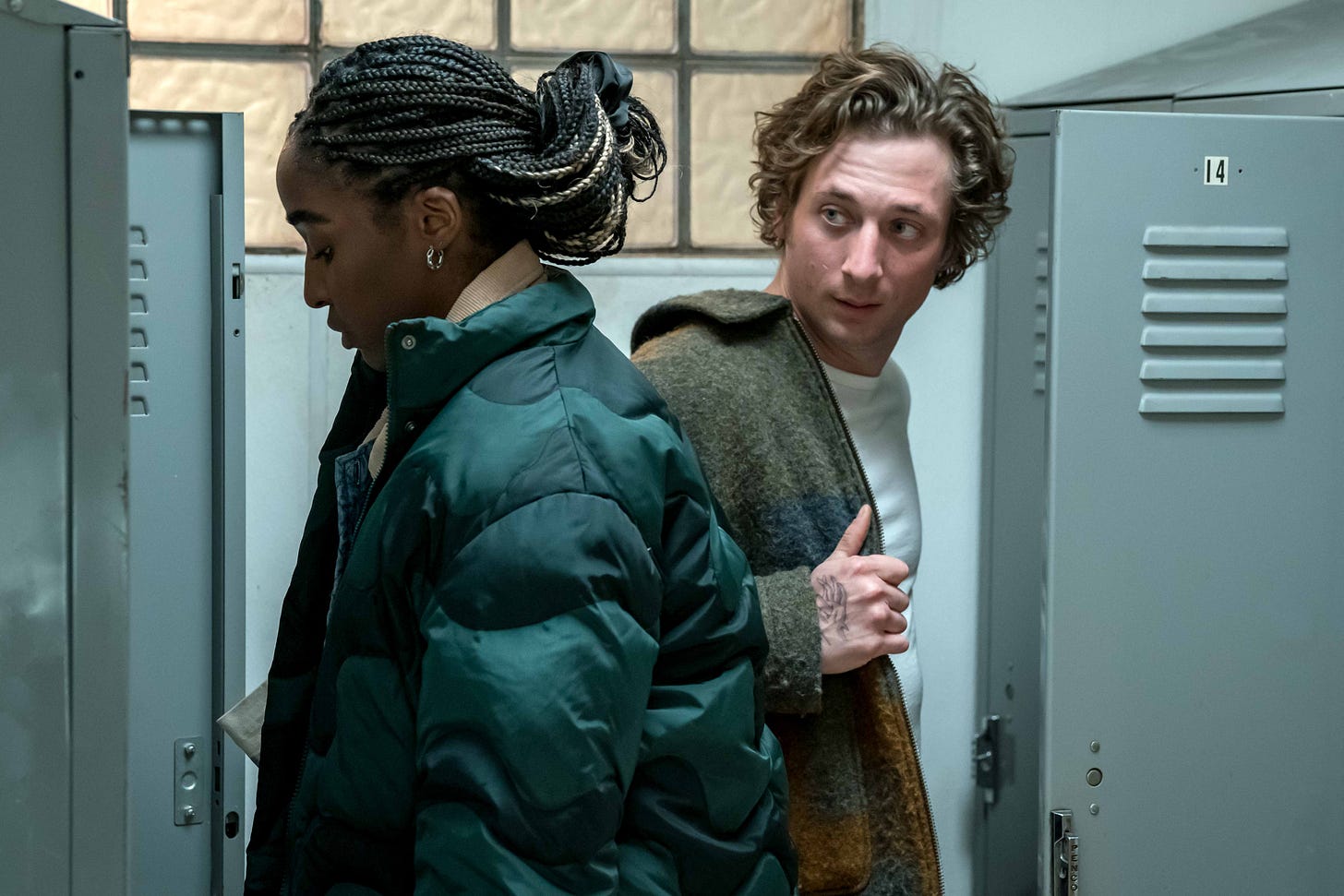
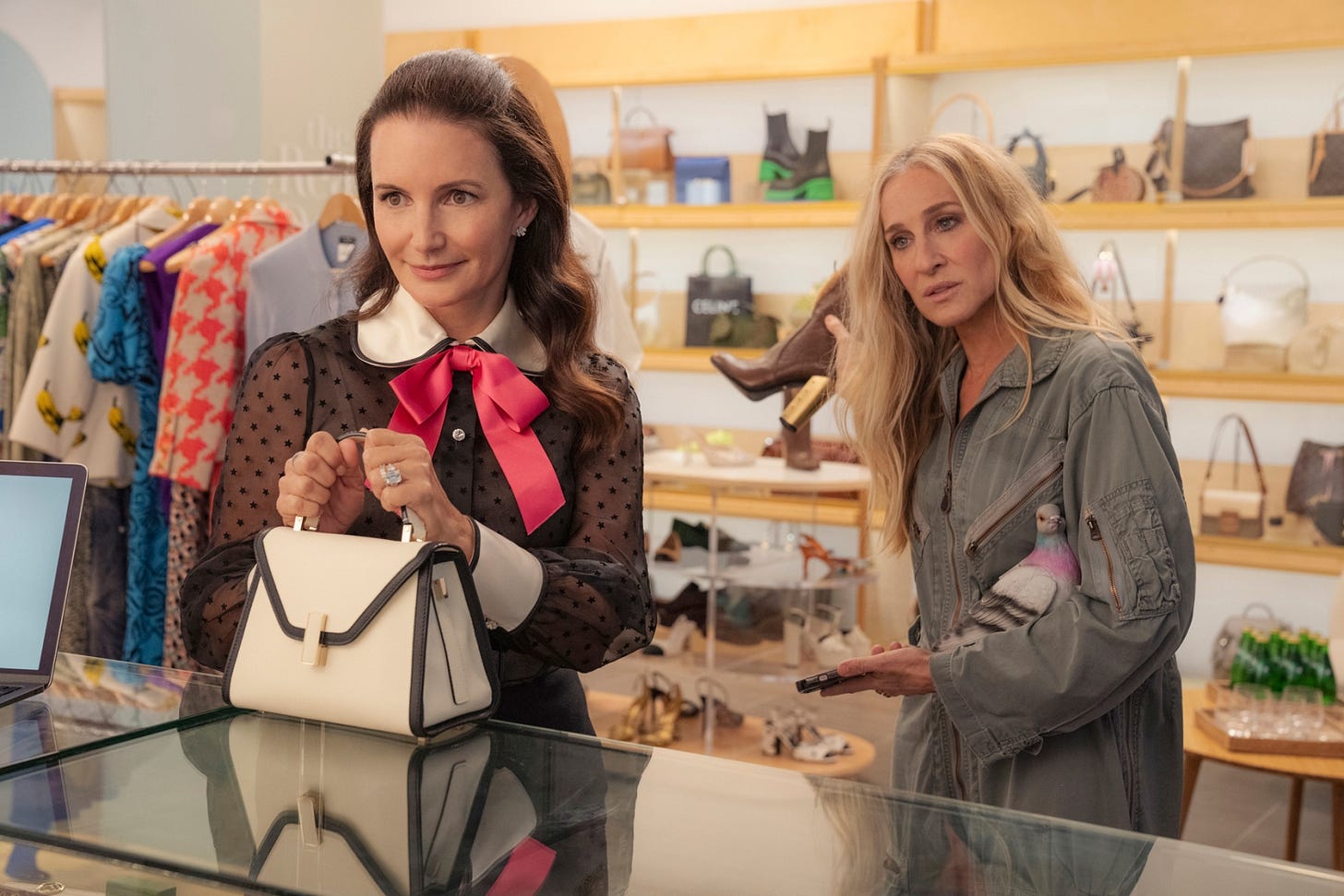
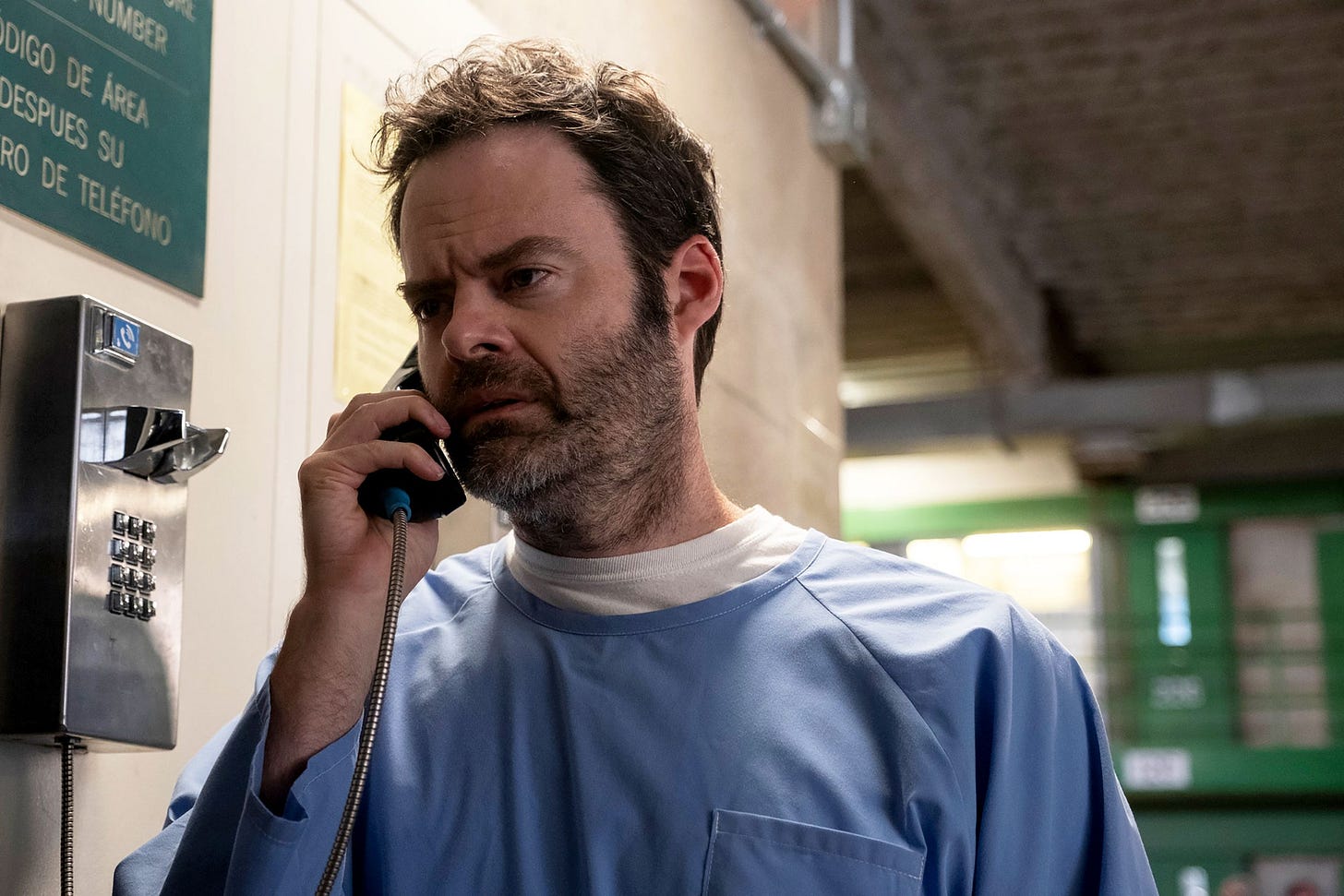
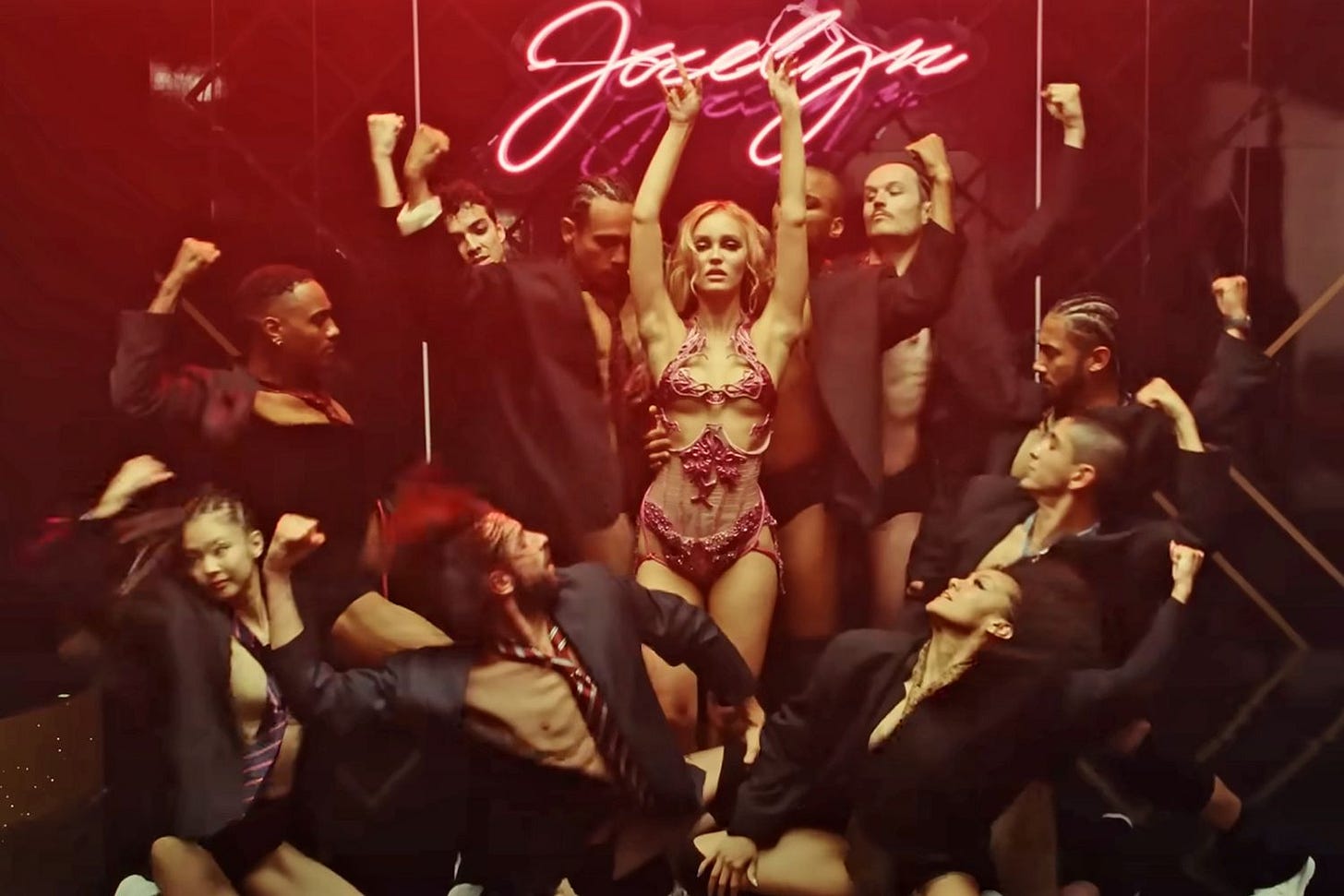
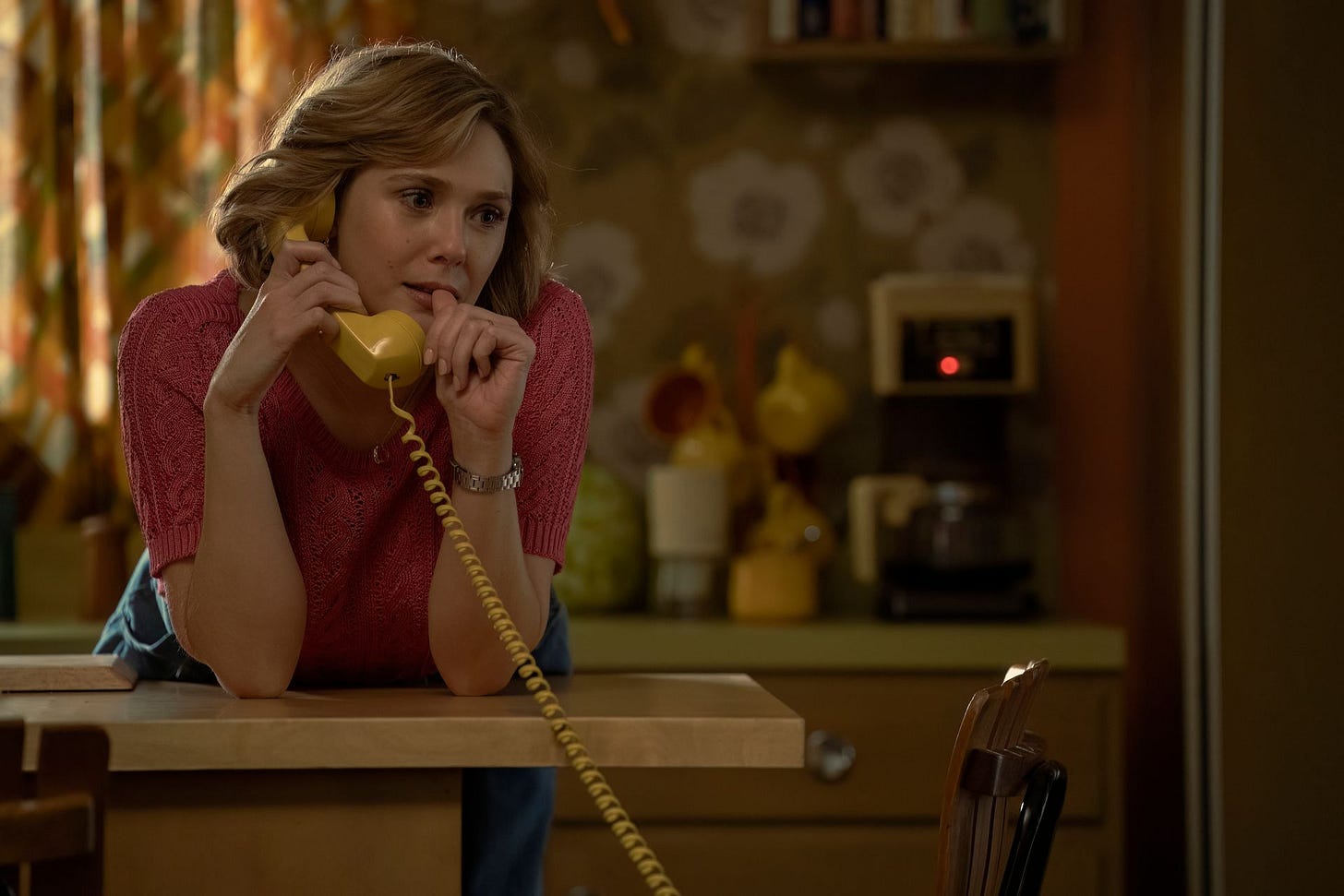
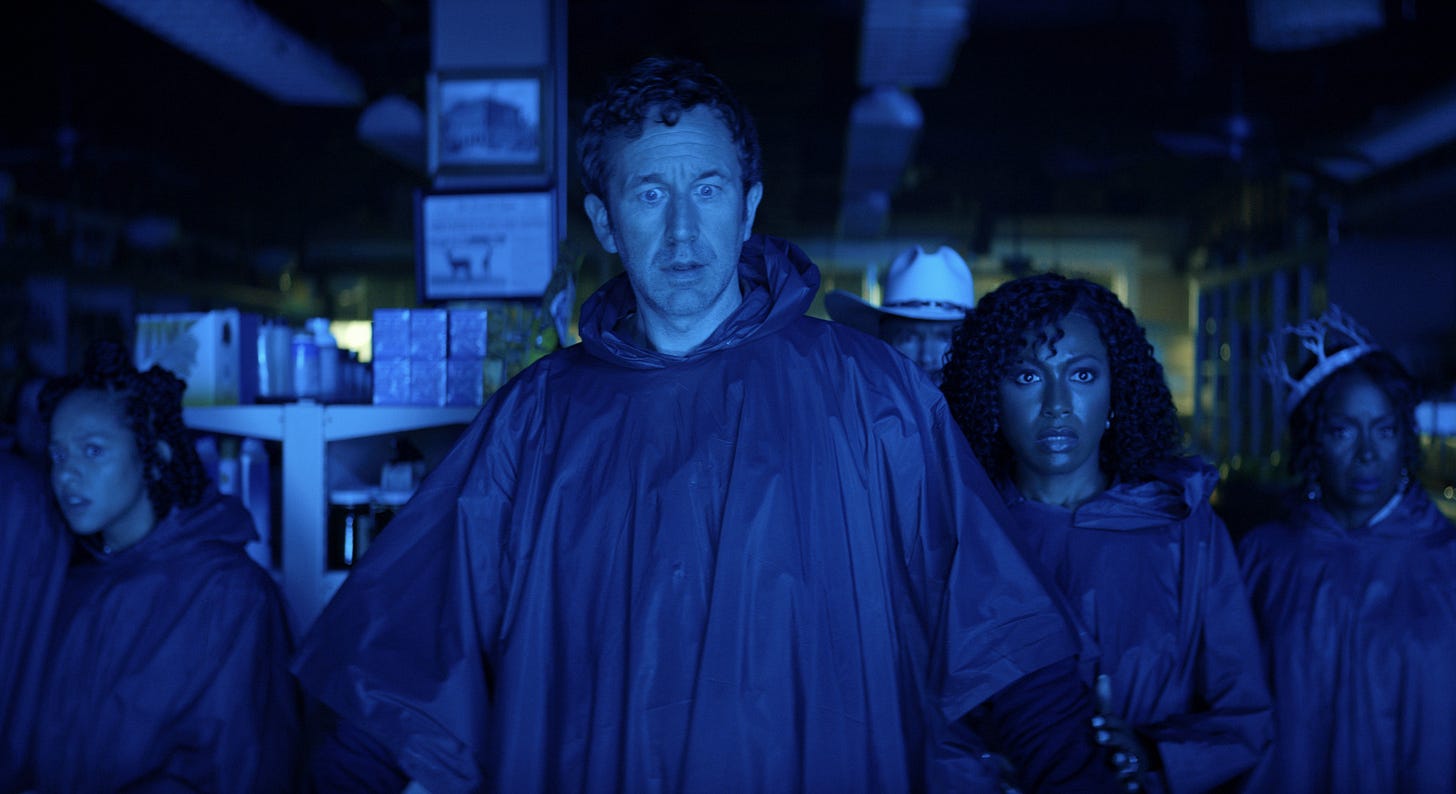
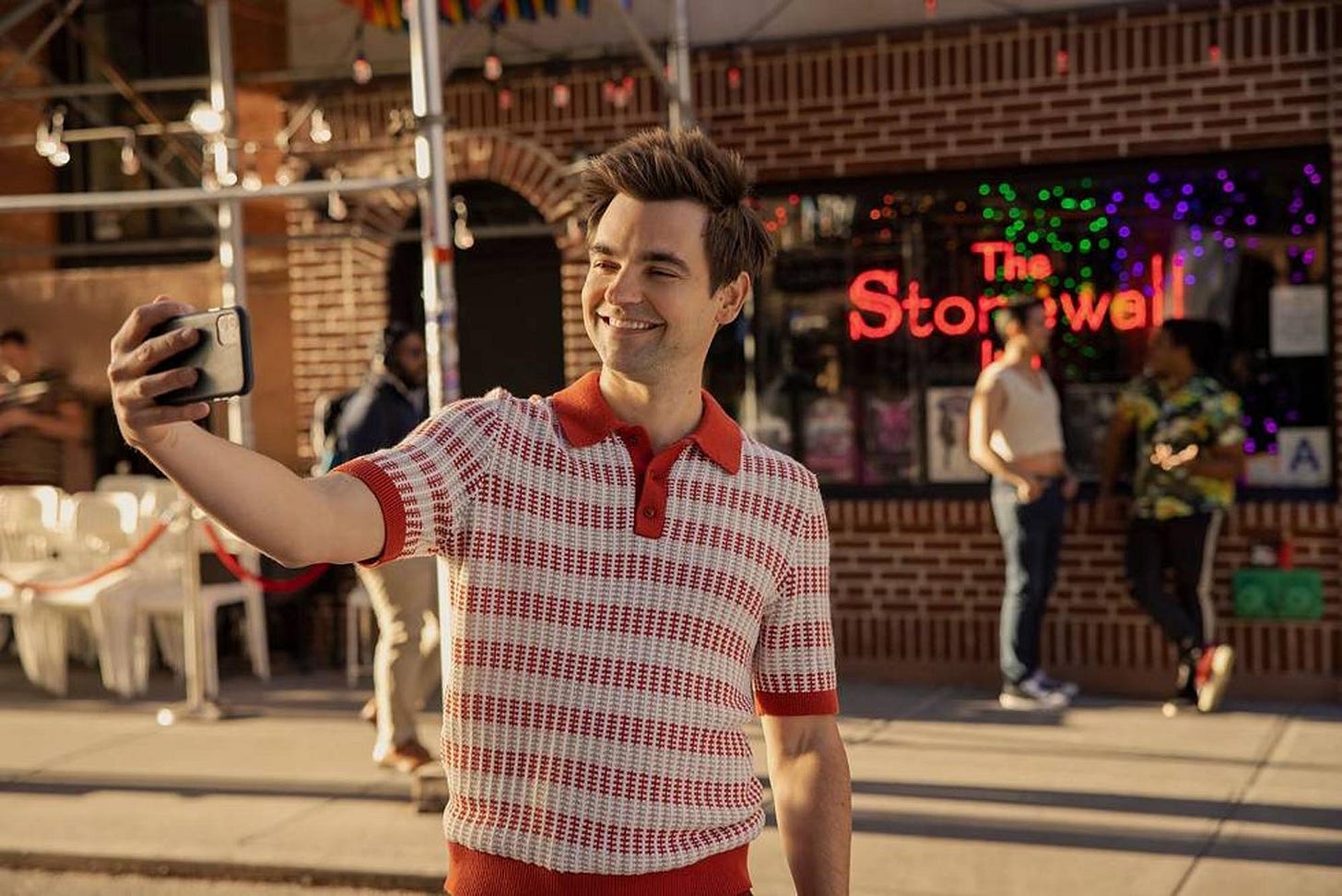
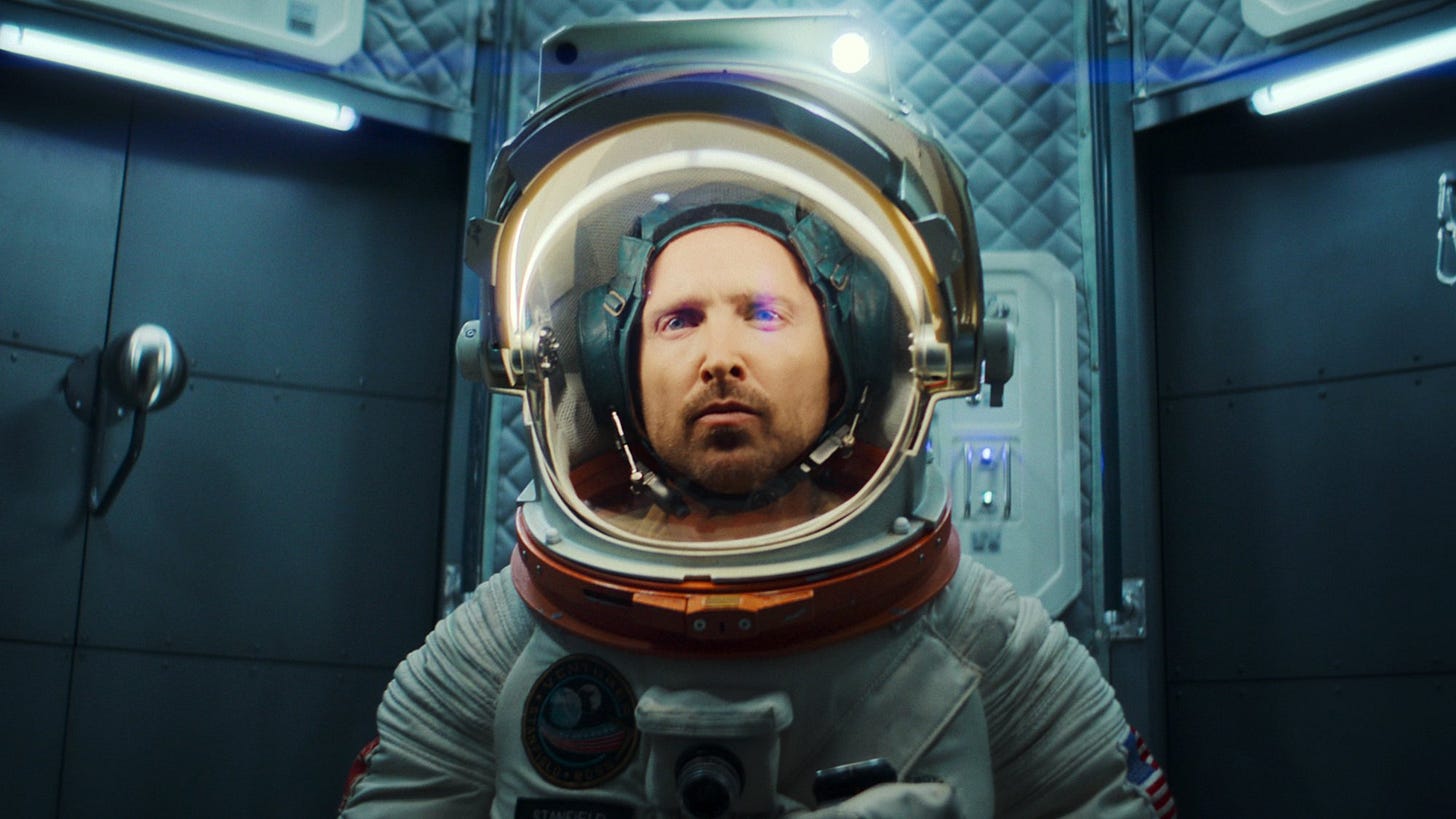

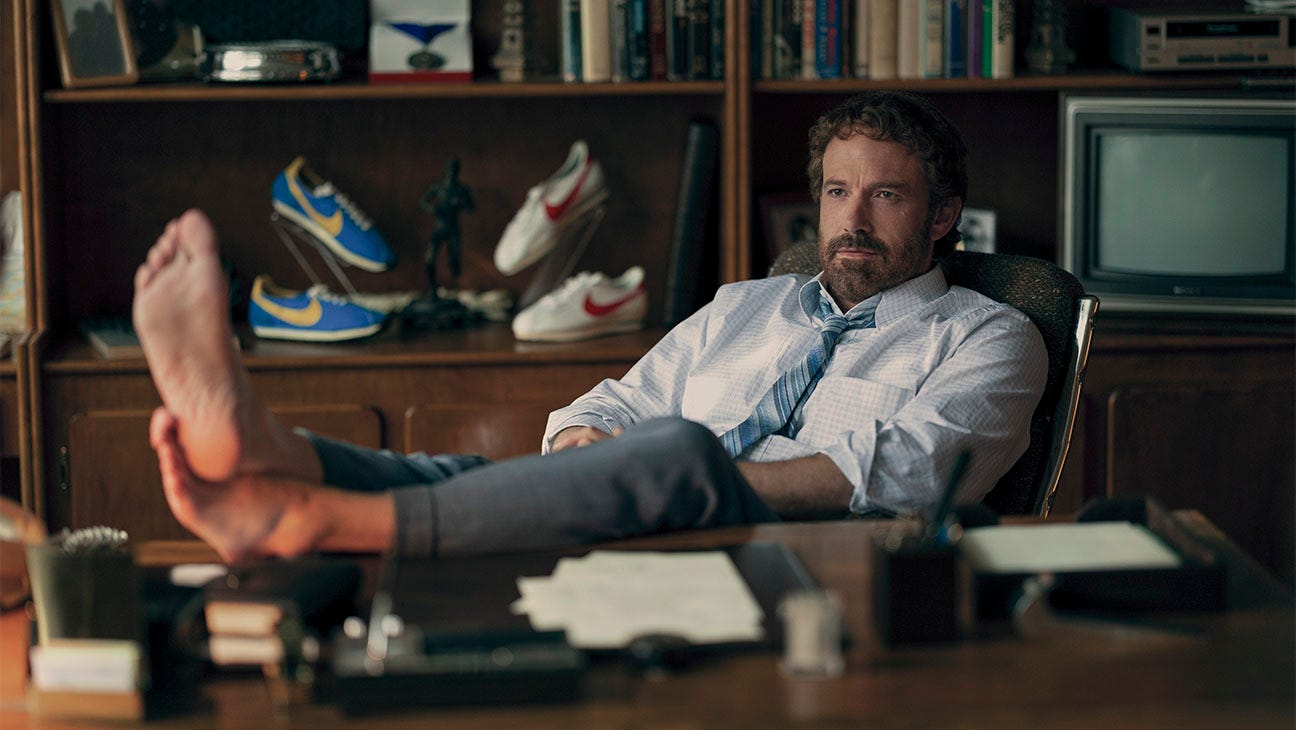
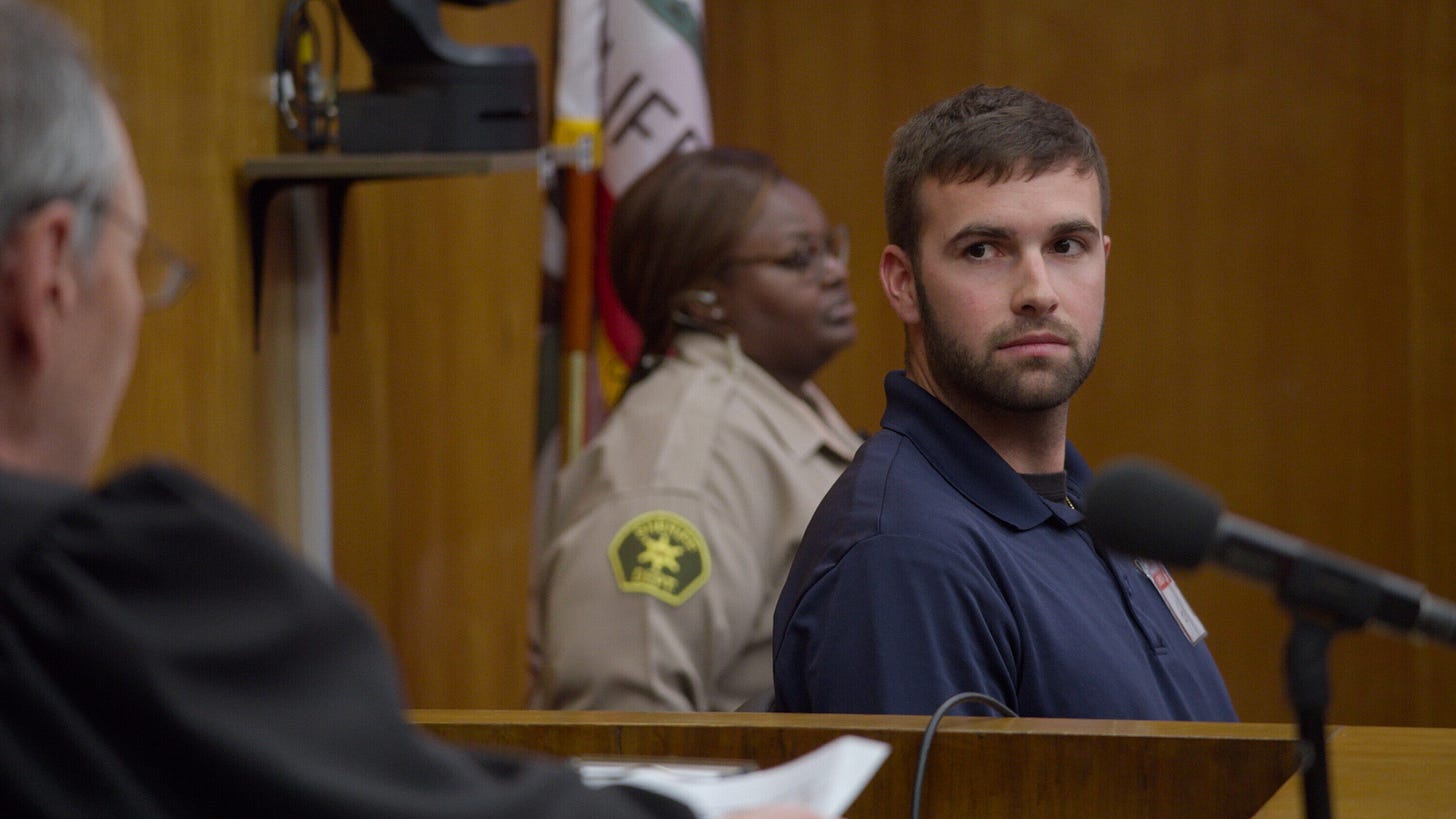


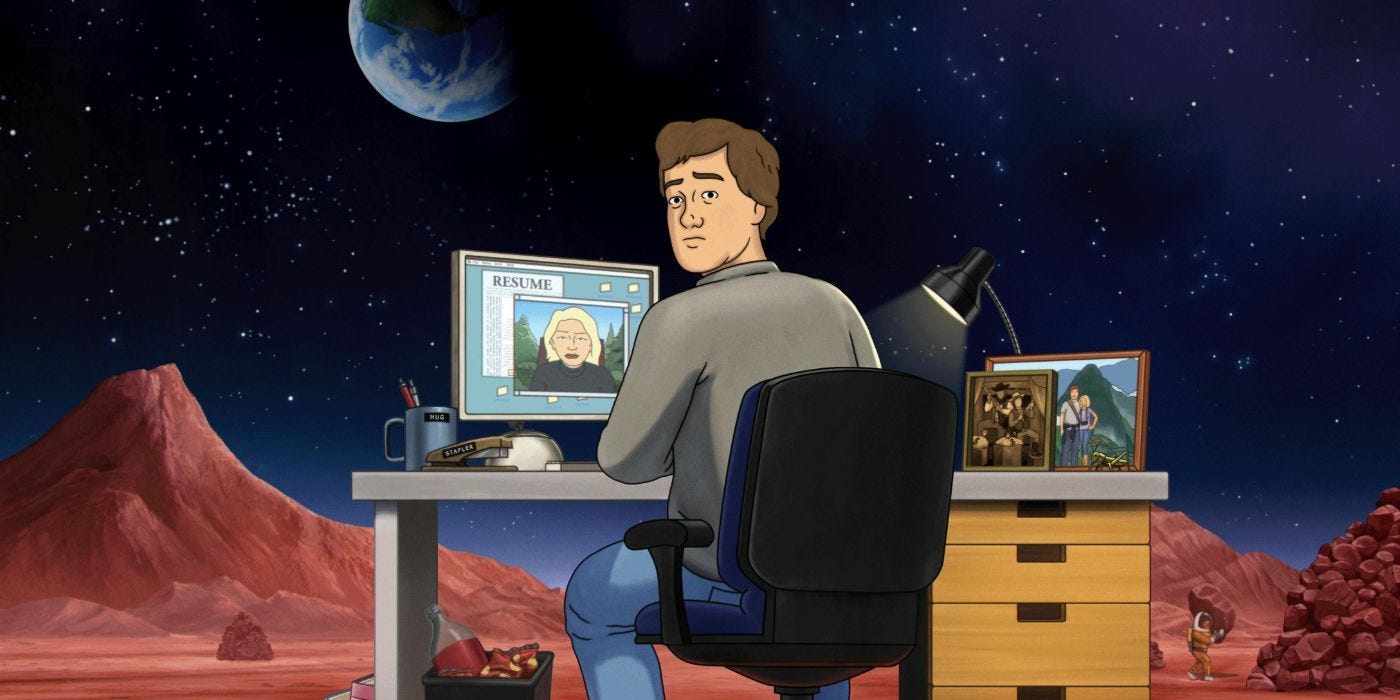

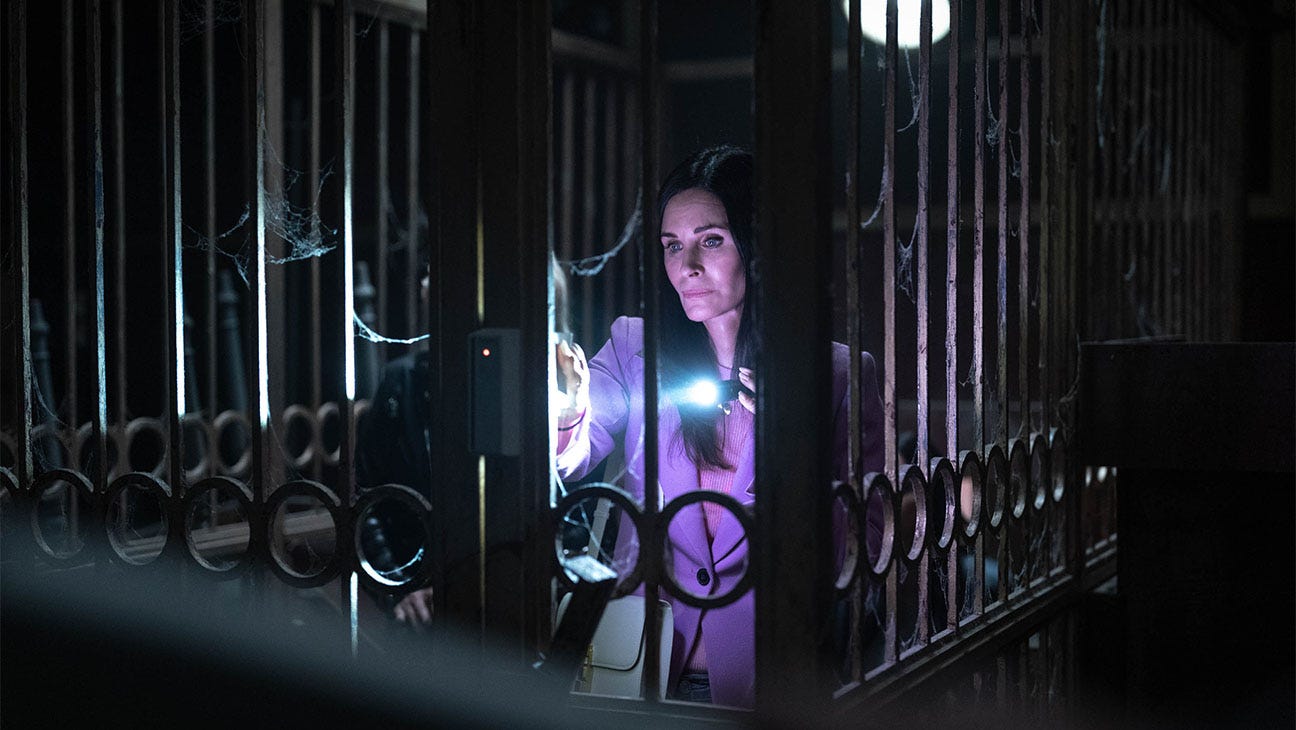
The Great + The Bear = The Great Bear 🐻 or what you should watch this week. You may want to dance with somebody, but it will be underwhelming 🕺